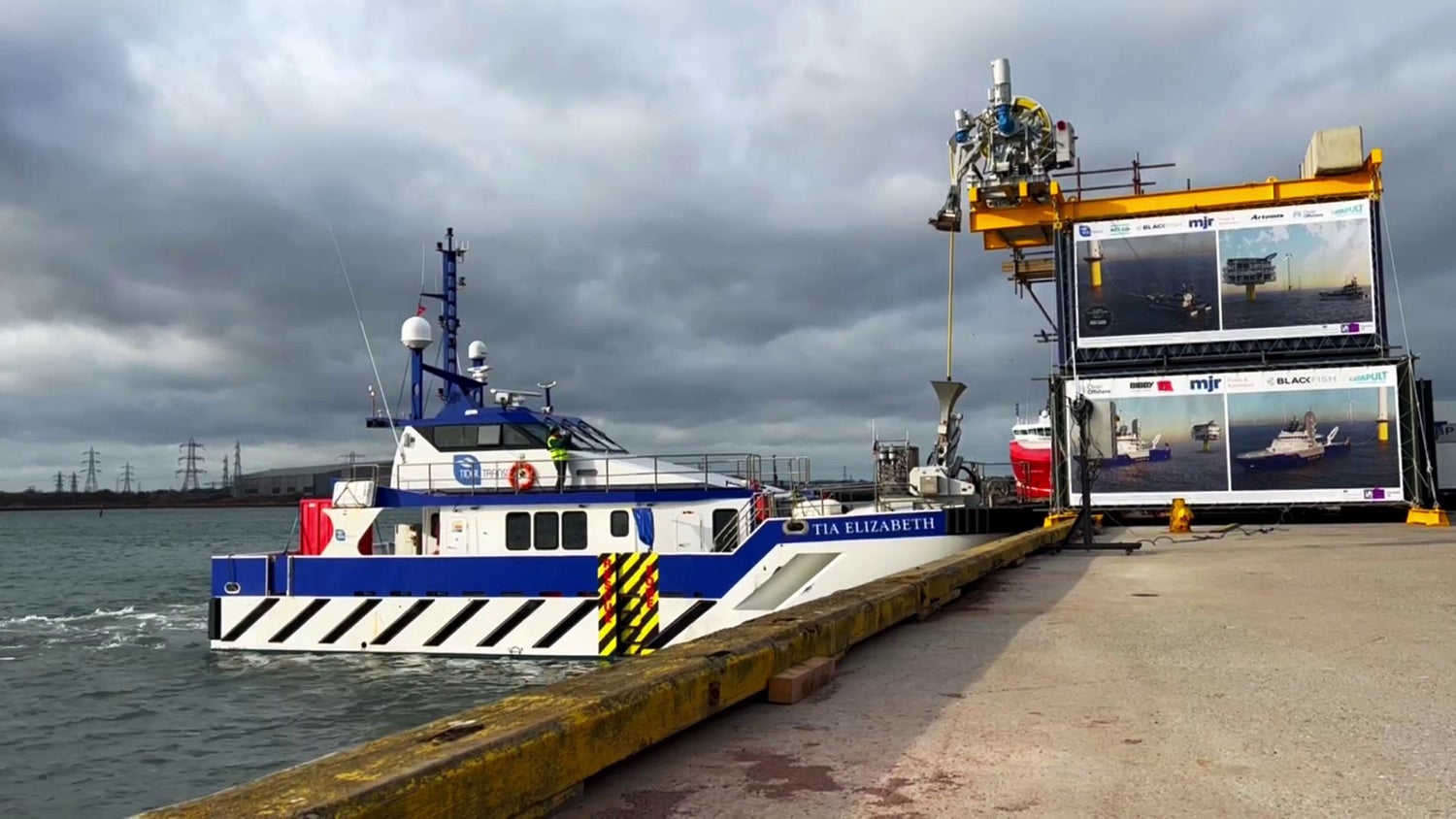
MJR Power and Automation, together with its project partners Blackfish Engineering and Tidal Transit have confirmed successful harbour trials of its platform-mounted automated offshore power and charging system.
The trials were undertaken at the Port of Blyth using the TIA Elizabeth Crew Transfer Vessel (CTV) owned and operated by Tidal Transit.
The trial’s setup replicated the installation of the offshore power and charging system on an offshore wind turbine, validating the safe connection, mooring, and charging of the battery bank installed on the CTV.
With safety embedded throughout the system, all interconnection, mooring, automation, monitoring, and safety systems – including wireless communication and emergency disconnection – were tested and validated.
Designed to convert energy delivered directly from an offshore wind farm, the system will enable heavy hybrid and electric crew transfer vessels to connect to a 100% green energy source in the field, generated by offshore wind turbines.
It also enables offshore power to be supplied to other support vessels, allowing them to turn off their diesel generators while standing by, similar to connecting to shore power.
How well do you really know your competitors?
Access the most comprehensive Company Profiles on the market, powered by GlobalData. Save hours of research. Gain competitive edge.

Thank you!
Your download email will arrive shortly
Not ready to buy yet? Download a free sample
We are confident about the unique quality of our Company Profiles. However, we want you to make the most beneficial decision for your business, so we offer a free sample that you can download by submitting the below form
By GlobalData“Our offshore power and charging system is a ground-breaking innovation set to revolutionise the marine sector, which has huge potential to enable the industry to seamlessly transition to electrically operated CTV fleets,” said MJR managing director Paul Cairns.
“By providing a solution to power vessels and charge batteries in the field – primarily during periods when they would otherwise be idle – MJR’s offshore power and charging system will prove to be a key enabler for the large-scale deployment of eCTVs and larger electric hybrid vessels across the offshore sector.
“If 50% of the UK’s CTV fleet converted to electric operation, approximately 131,100 tonnes of CO2 would be eliminated each year. These figures highlight that such technology, and the adoption of it, will be pivotal in reducing emissions and helping owners, operators, and governments to achieve their net-zero targets.”
With successful harbour trials now complete, MJR will now demobilise the equipment and prepare for installation on an operational offshore wind farm substation in the North Sea.



